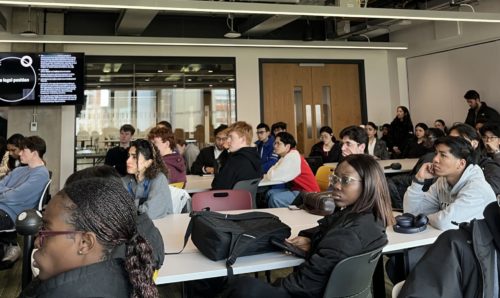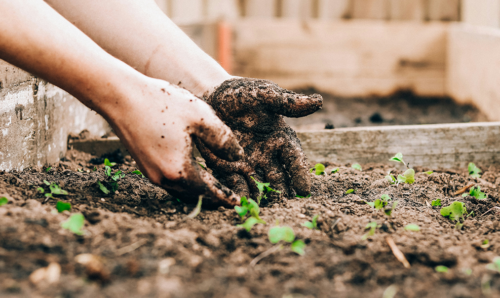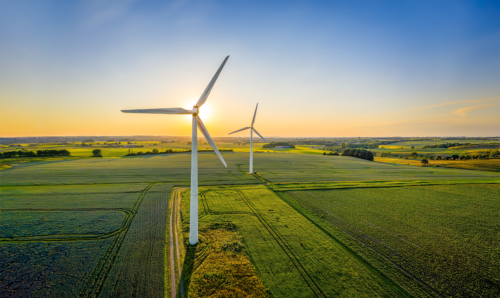Green Together: bringing science and sustainability to Manchester’s Central Library
Chemical Engineering Chemistry Dalton Nuclear Institute Materials Outreach Research Social responsibility 26th March 2024
Spring is a season marked by sustainability awareness, from Food Waste Action and Cultivation Street Week to Global Recycling Day and Earth Hour. Now, while these occasions are great for gaining momentum, climate change can often feel like a complex and overwhelming problem to tackle in silos! Doing so with the camaraderie that comes in numbers can make the climate crisis feel slightly less like a David vs. Goliath situation.
That’s why the Faculty of Science and Engineering curated Green Together, a sustainability campaign that recently ran its first event at the end of February. Hosted over three days, our scientists and engineers shared their sustainability research in fun, free, and interactive ways at Manchester Central Library.
The aim of Green Together was for the local community to get up-close with the technology and engage with the experts who are driving forward the sustainability movement. With scientists and engineers on-hand to offer advice and alternatives without judgement, the environment was friendly and informal, and perfection was definitely not expected.
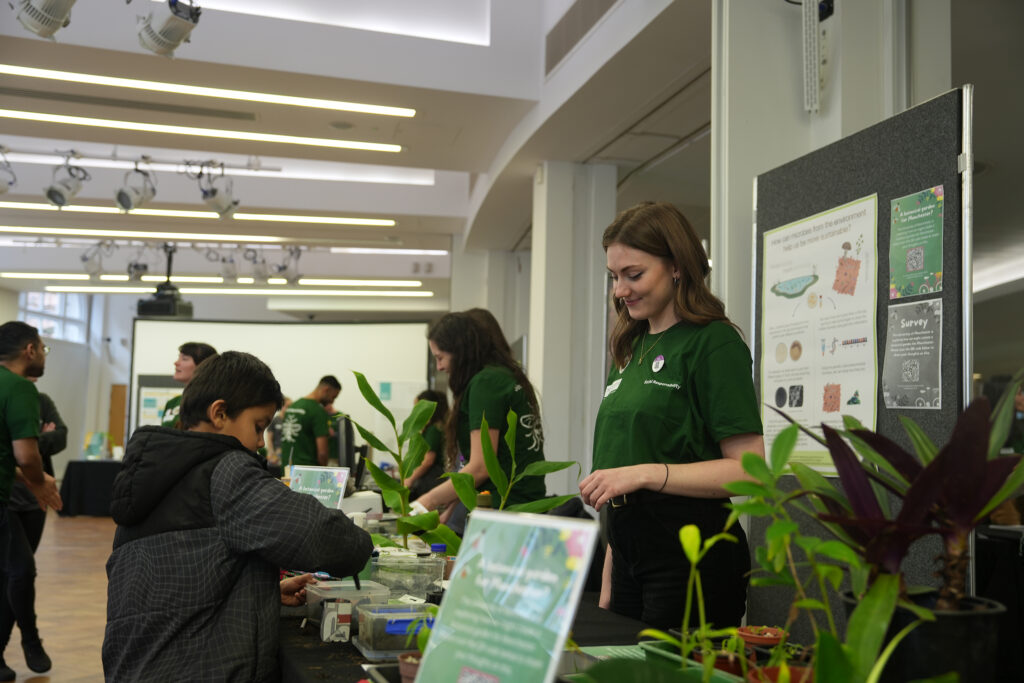
The timing was also ideal. After all, Spring is a time for new beginnings, and while we’re decluttering our wardrobes and sprucing up our gardens, why not refresh our habits too?
Under the Microscope: De-mystifying Microfibres
Scientists from The Department of Materials shed light on the reality of microfibres, allowing visitors to see their clothes up-close with hand-held microscopes. In fact, the experts revealed that in the next 20 minutes, our clothing could shed up to 240,000 microfibres, and that’s just the clothing we’re wearing right now.
If that sounds like a lot, a 6kg load of washing could actually release between 0.1 million – 18 million microfibres per cycle, with around 840 million domestic washing machines located around the world!
Microfibres have been found everywhere, from the highest peaks of Mount Everest to crustaceans in the deepest parts of the ocean. Although the research on humans is ongoing, early signs suggest microfibres can cause immune system issues and diseases, including cancer.

Cultivating Change: Home-grown Goodness
A team dedicated to everything home-grown also attended the event, with an array of houseplants and foliage very aptly decorating their stand. They represented the Firs, which is The University of Manchester’s very own botanical gardens located in the popular student hub of Fallowfield.
Visitors were told about the work of The Firs as they planted vegetable seedlings in recyclable newspaper cups to take home. This activity embodied the overarching message of Green Together, which is adopting new behaviours and carrying them into our everyday lives.
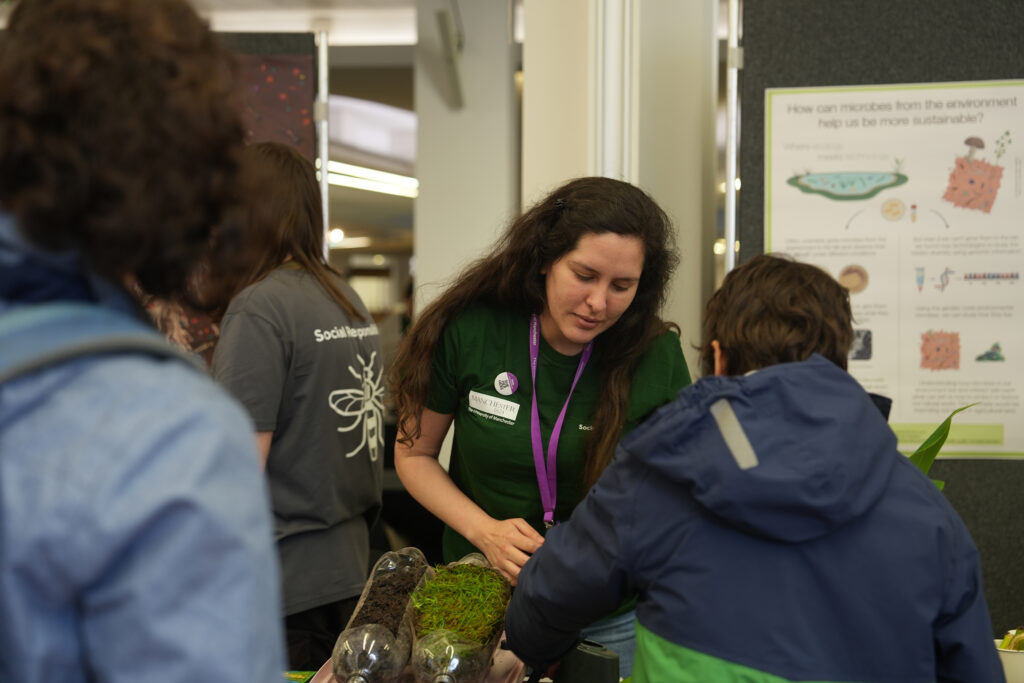
Weekly Food Shop: The Cost in Carbon
Student volunteers accompanied Dr Wennie Subramonian from The Department of Chemical Engineering to offer insight into the environmental impact of our weekly supermarket shop. The exercise involved ‘shopping’ with a toy basket and faux produce before Wennie calculated (a simplified estimate of) the carbon output. The exercise really emphasised the power behind people making smarter choices to lessen their personal carbon footprint!
Little switches can actually have a huge difference. For example, swapping from lavender to rosemary-scented personal care products significantly reduced carbon emissions. This is because lavender requires large amounts of agricultural space and infrastructure to gather enough essence for shampoos, conditioners, and fragrances. Similarly, shopping imported tomatoes can actually be more eco-friendly than those ‘locally-produced’ in the UK, due to the energy-intensive heat lamps used to create the right growing climate. Who’d have thought it?
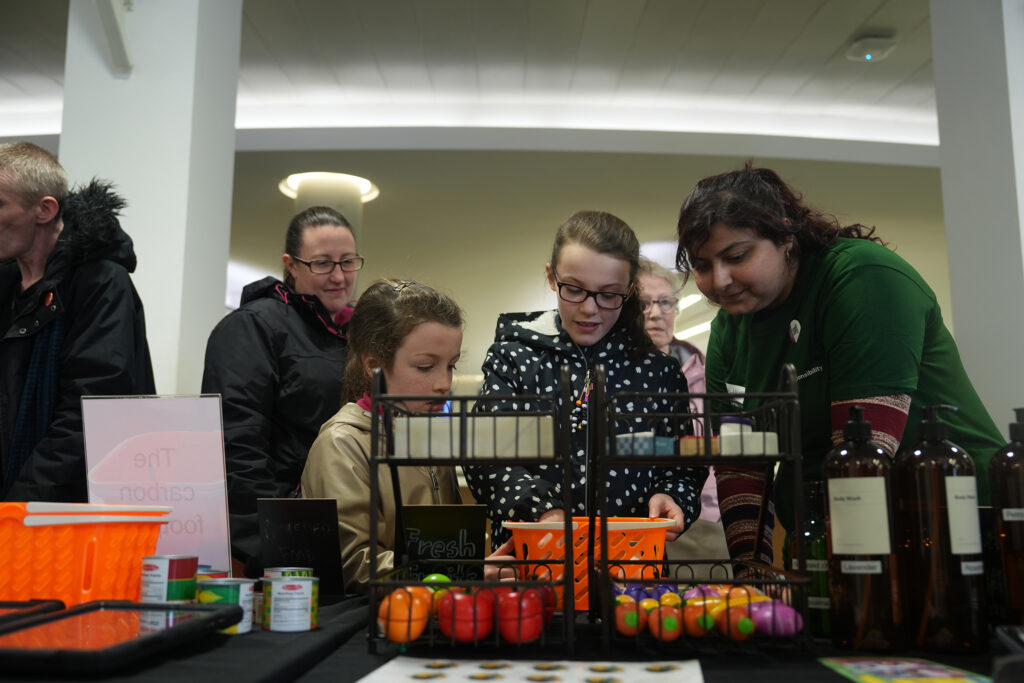
Building Blocks for Greener Energy: Nuclear Power
The word ‘nuclear’ can immediately sound too abstract a concept to apply to our everyday lives, however, one team of volunteers came equipped with a Lego model to simplify things. It was a miniature nuclear reactor, demonstrating how such energy can be used as a greener power source than its counterparts coal, gas, and oil. Pretty game-changing!
These scientists and engineers work in The Dalton Institute, which is a community of skills and expertise in nuclear research at The University of Manchester. In fact, it’s actually the most advanced nuclear research capability in UK academia.
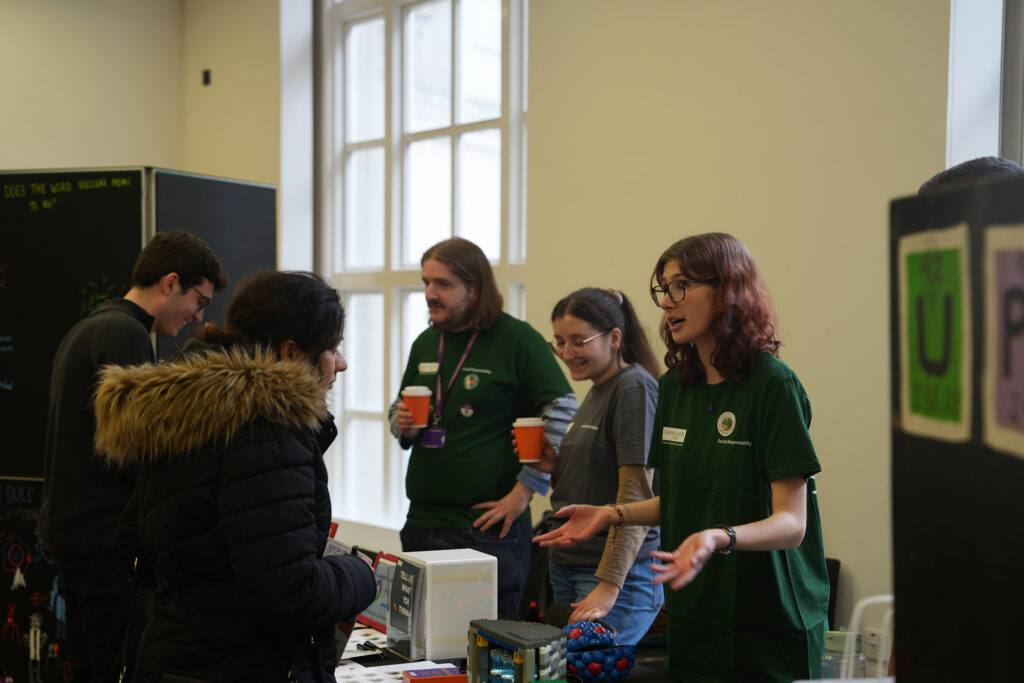
Waste Disposal: To Recycle or… Not to Recycle?
Have you ever recycled some plastic packaging on the off chance that it finds new life as a reusable cup or biro pen? Well, scientists from The Department of Materials shed light on how this ‘sympathy recycling’ is actually worse for the environment than not recycling at all. Pretty ironic.
Correct recycling is particularly important in Manchester, as there are differing rules and regulations here compared to the rest of the UK. The team had handy props to demonstrate which items can go in what bins, and even brought a model of what recycled plastic looks like fresh from the factory.
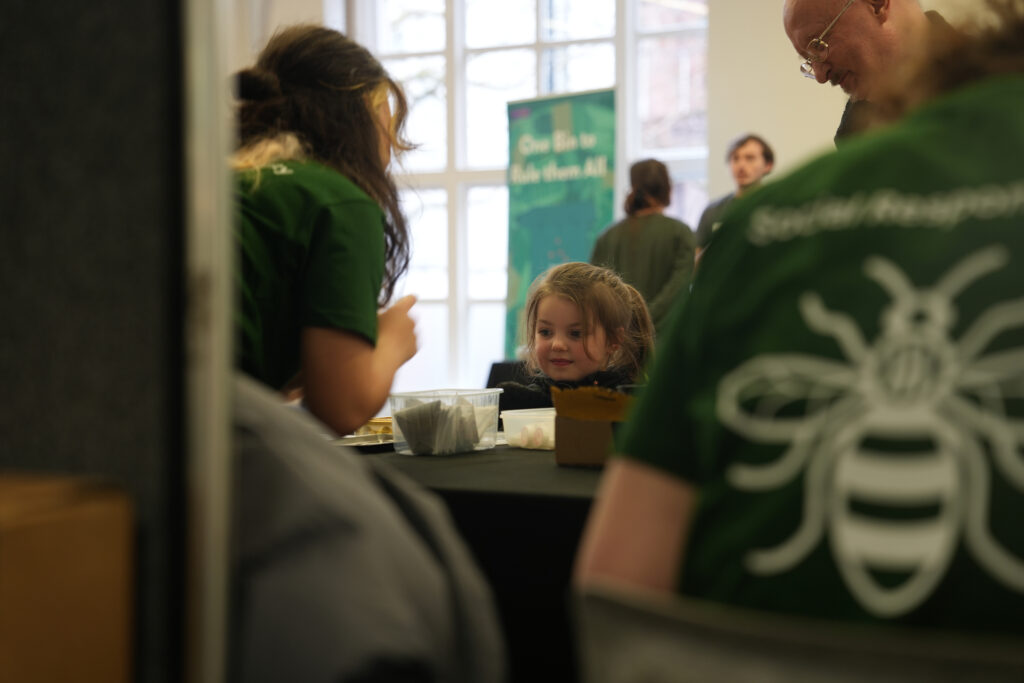
On the whole, Green Together inspired constructive dialogues based on solutions, community, and hope. A respite, of sorts, for those who can feel lost within the daily barrage of climate-related information!
Similar to the turn of seasons, sometimes we need a shift in environment or a change of pace to cultivate and harvest the right tools for action. Initiatives like Green Together democratise sustainability resources beyond the big debates and exclusive events, ensuring local communities are always part of the climate conversation.
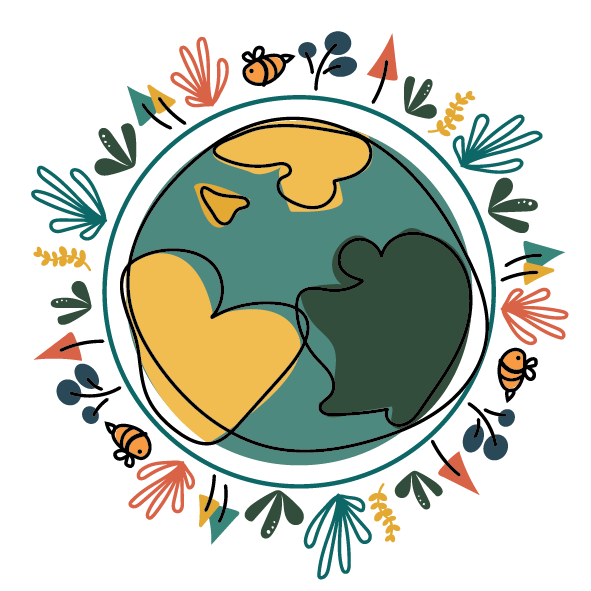
Words by Alice Stevens
climate changeGreen TogetherManchesteroutreachrecyclesocial responsibilitysustainability


